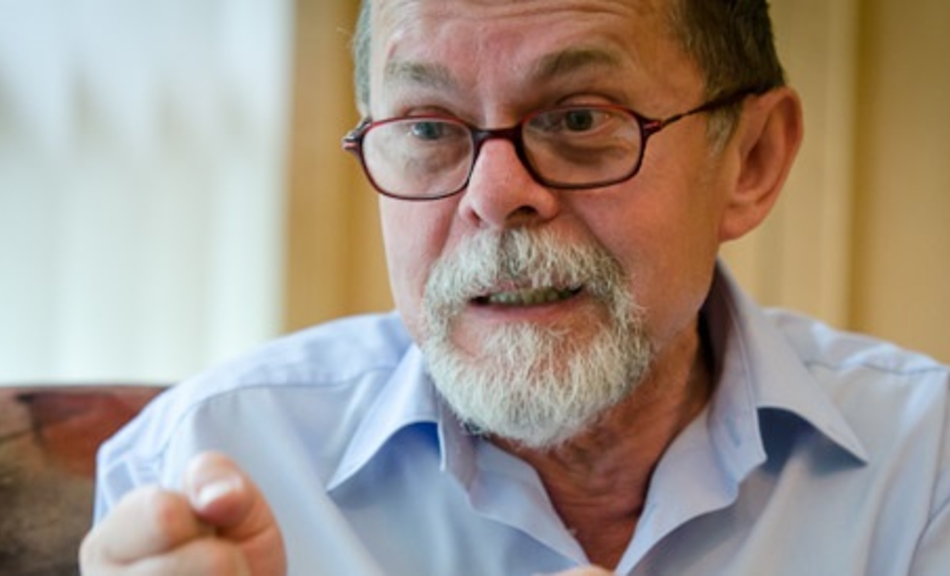There is a world war, now on two fronts, so perhaps it is not surprising that we come across the adjective "inhuman" every day. What's more, we also find it natural to apply the adjective inhuman mostly to people. Inhuman people, let's taste this word connection, because how can a person be inhuman at all?
And can we label anyone as inhuman without having the courage to define what it is to be human? Because in my last fifty-four years as an adult, I have not come across such a truly serious experiment. Of course, there were, there are, and there will certainly be plenty of definitional attempts that do not confront the essence, or rather consciously try to hide the essence, but
a confrontation that could help us solve the mystery, that is, how a person can be inhuman, it is not very common.
On the first and second Ukrainian fronts of the current world war (the latter was opened in the Middle East by the lord of all wars, that "non-existent" force that controls a certain world), something happens almost every day to which we can attach the adjective inhumane, but these actions are embarrassing in all cases it is perpetrated by people. So how is this? In order to assess the deeper layers of the question, it is worth recalling the debate that Ágnes Heller sparked sometime in the mid-nineties with her statement that the Holocaust is outside of history. A few weeks later, in response to this, Péter Nádas argued that the problem is precisely that the Holocaust is outside of history and should be included there.
If we interpret this endless debate correctly, the question here is how to view inhumanity in its context?
If the answer to this is no, it can't, and even shouldn't, then it logically follows that the perpetrators are not human, since their actions are outside of human history. If, on the other hand, the answer is that it is not only possible, but must (or rather should) be viewed in its context, then it must be seen as the painful intellectual work that tries to reveal how people can commit things that we can rightly believe in our first emotional impulse that it is "inhuman", but once the perpetrators were human, then it can only be "human".
In other words, we have come back to the basic question of what is a person?
A person who appears to be routinely capable of committing "inhumanity," that is, doing things that are diametrically opposed to the deepest essence of being human. Because man is fundamentally good. Really? Then I wonder how it is possible that the peoples of the Middle East have for thousands of years believed in their existential view of man what the "eye for an eye, tooth for a tooth" logic describes. And what should we think of the most common turn of Hungarian folk tales, which says "expect good for a good deed"?
While the first "message" is based on the existential perspective of revenge and starts from the premise that humans are capable of all evil (that is, all "inhumanity"), the second does not directly interpret the ontological essence of "evil", but only mildly hints at that you are human, so if you know it, feel it and do good. The deepening of evil logically follows from the first one, because this is a total war of existence ("human game with a negative sum"), in which the fatal view of existence and liquidation increasingly dominates, that if I can harm the other person more than he can harm me, then I can interpret it as a profit, although it is obvious that we are both losers. On the other hand, perhaps it is not an exaggeration to read the deepening of "good" from the second one, because if I am able not to "wait for others", to make whether I do "good" dependent on others, but instead act as a natural display of my innermost being, this is perhaps as a taming spell, it can quell the mental chain reactions that make the entire human existence "inhuman".
Ontologically speaking, man carries the entire spectrum of Creation, everything from hell to heaven. And we have even worse news, and that is that this is true for all people without exception, and this puts those who selectively and arbitrarily distribute the inhuman epithet to people based on the "labels" dictated by the ever-dominant global power of opinion.
There are many signs that Fukuyama was right, the "end of history" is indeed approaching, just not quite as he imagined, but rather in the opposite way. He predicted that the combination of liberal democracy and free market economy would bring an era of eternal peace and prosperity.
Samuel Huntington, who was a professor at Yale University, wrote his book Clash of Civilizations That since liberal democracy and the free market economy are nothing more than the world dictatorship of the global ruling groups of the modern West dressed up in fancy words, we can expect a whole series of worldwide revolts that will make it obvious that the modern West has committed a fatal act by "opening up" the world ".
In other words, by interpreting his existence, which is based on his own view of existence and enables the plundering of the world outside him, as the only universal state of existence of humanity.
This third world war, which is now starting to deepen, with all the terrible "inhumanity" of its two fronts opened so far, is only a gentle introduction to this "beautiful new" world.
Featured Image: MH












